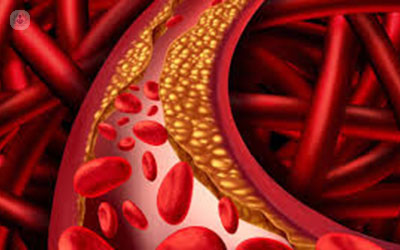


Lipidology is the study of cholesterol, in particular in finding treatments for high cholesterol and other lipid disorders. A lipidologist studies lipids and lipoprotein metabolism in the body and aims to find ways of reducing mortality rates related with high cholesterol. This is a growing area of expertise due to the increase in cholesterol-related diseases such as cardiovascular disease.

What are lipids?
Lipids are the fats-like substances that are found in the body. There are several types of lipids, the most common being cholesterol. Lipids are used by the body to build cell walls, and to allow fat storage in the body. They are needed in certain degrees in the body, but when the levels get too high, it can cause problems.
What are the different types of cholesterol?
There are two main types of cholesterol, LDL-cholesterol, which is otherwise known as bad cholesterol, and HDL-cholesterol, known as good cholesterol. LDL-cholesterol moves from the liver to the blood vessels, which can cause a build-up within the blood vessels, leading to a number of complications such as heart attack and cardiovascular disease.
HDL-cholesterol moves in the opposite direction, taking cholesterol from the blood vessels to the liver, allowing the cholesterol to be disposed of.
What does a lipidologist do?
A lipidologist treats people who have problems related to cholesterol or other lipid disorders such as problems with the amount of lipids in the blood (dyslipidaemia). A lipidologist will diagnose a cholesterol related problem, and decide on the best course of action for you.
What conditions form a part of lipidology?
The most common disease within the area of specialisation is an excess of lipids in the blood system, otherwise known as hyperlipidaemia.
There are a number of lipid disorders that are studies within lipidology, these include:
What are the causes of lipid disorders?
Most lipid disorders form as a result of an unhealthy diet combined with not getting enough exercise. The lipids can build-up in the body by being consumed in large quantities, and without the necessary physical activity levels needed to break down the lipids. However, there are a number of genetic lipid disorders.